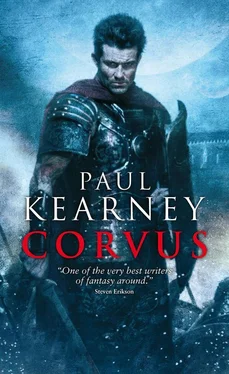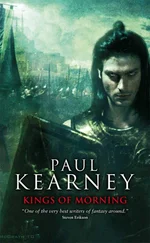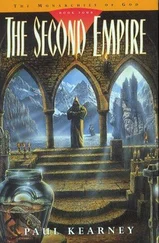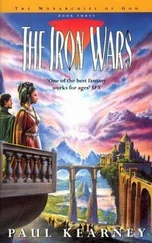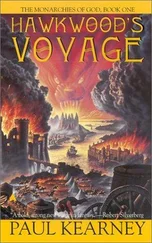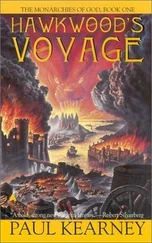Paul Kearney - Corvus
Здесь есть возможность читать онлайн «Paul Kearney - Corvus» весь текст электронной книги совершенно бесплатно (целиком полную версию без сокращений). В некоторых случаях можно слушать аудио, скачать через торрент в формате fb2 и присутствует краткое содержание. Жанр: Фэнтези, на английском языке. Описание произведения, (предисловие) а так же отзывы посетителей доступны на портале библиотеки ЛибКат.
- Название:Corvus
- Автор:
- Жанр:
- Год:неизвестен
- ISBN:нет данных
- Рейтинг книги:5 / 5. Голосов: 1
-
Избранное:Добавить в избранное
- Отзывы:
-
Ваша оценка:
- 100
- 1
- 2
- 3
- 4
- 5
Corvus: краткое содержание, описание и аннотация
Предлагаем к чтению аннотацию, описание, краткое содержание или предисловие (зависит от того, что написал сам автор книги «Corvus»). Если вы не нашли необходимую информацию о книге — напишите в комментариях, мы постараемся отыскать её.
Corvus — читать онлайн бесплатно полную книгу (весь текст) целиком
Ниже представлен текст книги, разбитый по страницам. Система сохранения места последней прочитанной страницы, позволяет с удобством читать онлайн бесплатно книгу «Corvus», без необходимости каждый раз заново искать на чём Вы остановились. Поставьте закладку, и сможете в любой момент перейти на страницу, на которой закончили чтение.
Интервал:
Закладка:
But even so, he reined in his blowing mount when Machran itself finally came into view across the rolling farmland to the west, the Harukush rearing up in the gem-bright sky behind it. At the side of the road was an ancient stone waymarker, carved with writing so ancient that men no longer understood it. The view of the city from this point was famous, and bumpkins from the east had been known to stand here and gawp at the sight.
Machran of the White Walls, the city had once been called, though most of the marble which had given it that name had been stripped away over the centuries. Those walls were the height of five tall men, and the towers along them twice that. Sixteen pasangs, the walls ran, enclosing a close-packed space the shape of an elongated egg. There were two hills within them, massive mounds which had been built over again and again since time immemorial. To the west, the Round Hill, a conical height upon which the richest districts of the city were clustered in well-spaced streets. To the east, Kerusiad Hill, upon whose slopes Karnos himself had his home.
Legend had it that the two hills had once been two separate villages which quarrelled with one another until some bright soul had suggested they meet in the hollow between them to settle their differences. This marshy hollow had become a meeting place for the two communities, until they grew and merged.
There had been a river there once, which flowed north into the Mithos, but it had been covered over long ago, and was now the main sewer for the city. And in deference to ancient tradition, the Empirion stood in that hollow, whose dome Karnos could see now shining in the winter sunlight. A place of learning, of entertainment, and – more prosaically – somewhere for the assembly to convene when the weather was especially bad.
Not far from it was the Amphion, the Speaker’s Place where the assembly gathered in ordinary session to hear their leaders debate the issues of the day. The marshy riverbottom had become the seat of power and government for the greatest of all the Macht cities. The only one, legend had it, which had never been conquered, by siege or assault.
The city had five gates, and Karnos was facing the South Prime, also known as the Avennon for the Quarter in which it stood. The gates were ancient, made of oak faced with bronze. Such was the prestige of Machran that Karnos could not remember in his life ever seeing those gates closed. Even at night, the wagons and carts of the country people went in and out of them, bringing their goods and their chattels, their pumpkins and their slaves and their hunting-dogs and their greed and dreams to the richest markets of the hinterland: the Mithannon, the Goshen, the Round Hill. These were places where all things could be had for a price, from a tinsmith’s scoop to a woman’s virtue.
And now, in this great city, this teeming walled hive of commerce and endeavour, there was something in such short supply that it had become almost beyond price. The courage of fighting men.
They had left a thousand spears behind when they marched out to meet Corvus west of Hal Goshen, and Karnos had entrusted his fellow Kerusia members, Dion and Eurymedon, with the task of recruiting more. But the true red-cloaked mercenary was a rare beast these days. One might hire any number of so-called warriors from the scum and vagabonds who came and went through the city like corn going through a man’s bowels, but these were not the disciplined, drilled centons of a generation ago. The genuine redcloak was just not to be had anymore, not in any numbers.
But I have my ten thousand, Karnos thought, just as Rictus had. It must be enough – it will be enough.
He kicked his horse, and cantered down the long slope towards his city, the fatigue of the road forgotten.
SIXTEEN
On the move at last, Corvus’s army did not present a very martial sight. Except for the absence of women, it looked more like a mass migration than a military formation. The men were bundled in their cloaks, most of them barefoot despite the cold, and scores were dropping out of the column to relieve themselves, squatting in the muck and rain-stippled water of the floodplain. Even the Companion Cavalry were afoot, leading their hangdog mounts off to the flank of the main column, the gaudy cloaks of the Kefren drenched and mudstained so as to blend in to the drear landscape.
The main column straggled along the line of the Imperial Road for over twelve pasangs, and the baggage train was even further back. Only in the van were there compact bodies of formed-up troops, like a fist kept clenched at the end of a withered arm. These were Rictus’s Dogsheads, and Druze’s Igranians. They plodded along with skirmishers thrown out in scattered clumps to their front. The Dogsheads had doubled their red cloaks over their shoulders to keep the hems out of the water, and their shields were slung on their backs, the bronze faces greening in the wet.
“All things considered, Fornyx said, “I prefer winter in the highlands.” He scratched his beard, squeezing the rain out of it.
“No good will come of him pushing the army like this,” Rictus said. “If it were up to me, I’d go into winter quarters in Afteni. It’s rich land around here. We could improve the roads back east and consolidate our hold on places like Hal Goshen, do the thing thoroughly.”
“Teresian hanged three deserters he caught yesterday,” Fornyx said. “Conscript lads from Goshen, been in the army about ten minutes, and missing home. He’s a bloody-minded bastard, that one. Reminds me of you, fifteen years ago.”
“Rules are rules,” Rictus said dryly, rubbing his wounded arm. “Corvus makes his own.”
“Well, they’ve brought him this far I suppose.”
Druze joined them, leaning on a javelin as though it were a staff. Pain had pinched lines about his eyes that had not been there before.
“Hear the news? Karnos is alive after all.”
Rictus was not surprised. “A born survivor, that fellow.”
“He’s on his way back to Machran, it’s said. The Afteni may have surrendered, but some of the hinterland cities are sticking by the League and marching their men back with him.”
“How many?” Rictus asked.
“Enough to make a fight of it.”
“Looks like our triumphal entry into Machran will be problematic,” Fornyx said, and spat into the mud.
“What does he mean to do, Druze?” Rictus asked.
“What do you think? He’s Corvus. He’d chase them to hell if they were still thumbing their noses at him. You mark my words, brothers, before the month is out we’ll be sitting in front of Machran looking at those big white walls and wondering how to get on top of them.”
“You can’t assault Machran, it’s never been done. It’s the strongest city in the world,” Fornyx protested.
Druze grinned. “All the more reason for him to try.” He patted Fornyx on the shoulder. “Cheer up! This is what it takes to make history.”
The army slogged onwards. Rolling out of their sodden blankets and tireless, cheerless camps well before dawn, the men were on the road while still chewing on salt goat and mouldy biscuit. They would march all day, though march was a euphemistic term for their mudsucking, agonising progress.
Then, as night fell, they would go into camp -another euphemism for lying huddled together in knee-deep mud with their cloaks and blankets drawn round their shoulders, their feet spoked towards whatever pitiable fire they could coax into life through the rain.
Corvus shared it all with them. The tents had been left behind with the baggage train, but a team of mules carried his along with the main body. He had it set up each evening with braziers burning bright and hot within, and he would spend part of every night rousing up those who seemed worst off with the flux or the cold, or carrying old wounds, and he would set them on clean straw in his tent, ply them with his own stock of wine, and a store of stories no-one had known he possessed. He did not seem to sleep at all.
Читать дальшеИнтервал:
Закладка:
Похожие книги на «Corvus»
Представляем Вашему вниманию похожие книги на «Corvus» списком для выбора. Мы отобрали схожую по названию и смыслу литературу в надежде предоставить читателям больше вариантов отыскать новые, интересные, ещё непрочитанные произведения.
Обсуждение, отзывы о книге «Corvus» и просто собственные мнения читателей. Оставьте ваши комментарии, напишите, что Вы думаете о произведении, его смысле или главных героях. Укажите что конкретно понравилось, а что нет, и почему Вы так считаете.
